As part of Gynecologic Cancer Awareness Month, also known as 'Teal September', the gynecology and oncology teams at the university hospital aim to raise awareness among the general public and professionals about these still little-known and often taboo cancers, even though treatment options do exist.
Women's Stories: An Exhibition to Raise Awareness
As part of Gynecologic Cancer Awareness Month, also known as “Teal September,” the gynecology and oncology teams at the Clermont-Ferrand University Hospital (CHU) aim to raise awareness among the general public and healthcare professionals about these still little-known and often taboo cancers, despite the existence of treatment options.
This year, the teams have chosen to engage the public through a photo exhibition, to emphasize the importance of regular medical follow-up and consulting a healthcare professional at the slightest concern—even after menopause.
This unique exhibition will be displayed in the city, on the gates of Jardin Lecoq in Clermont-Ferrand, from September 15 to October 13, 2025.
Entitled “Women's Stories,” the exhibition features nine portraits of female patients, aged 36 to 79, all treated at the CHU Clermont-Ferrand, either currently battling or in remission from a gynecologic cancer: uterine, cervical, or ovarian cancer.
Through their testimonies, these women share their journeys facing these often invisible and misunderstood cancers. Driven by a desire to raise public awareness, they also highlight seemingly minor symptoms (such as spotting, pain, bloating…) and encourage all women to consult regularly with a healthcare professional, especially for gynecological follow-up.
This initiative aims to break taboos, foster dialogue, and strengthen prevention around these conditions.
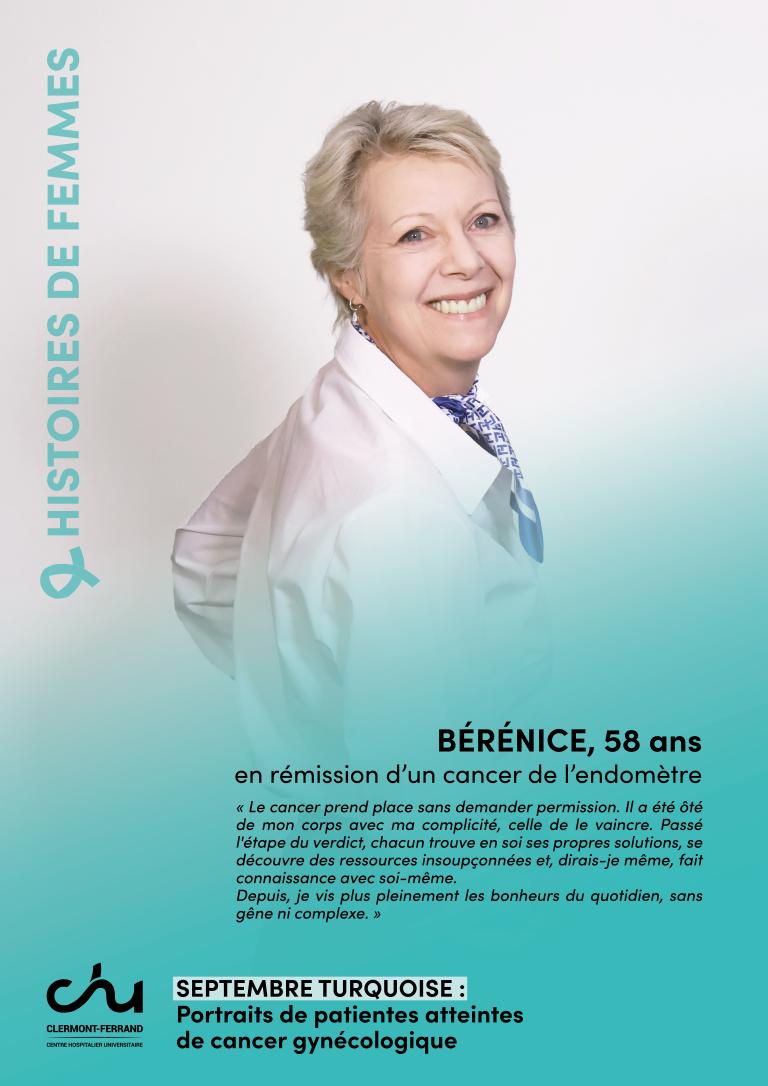
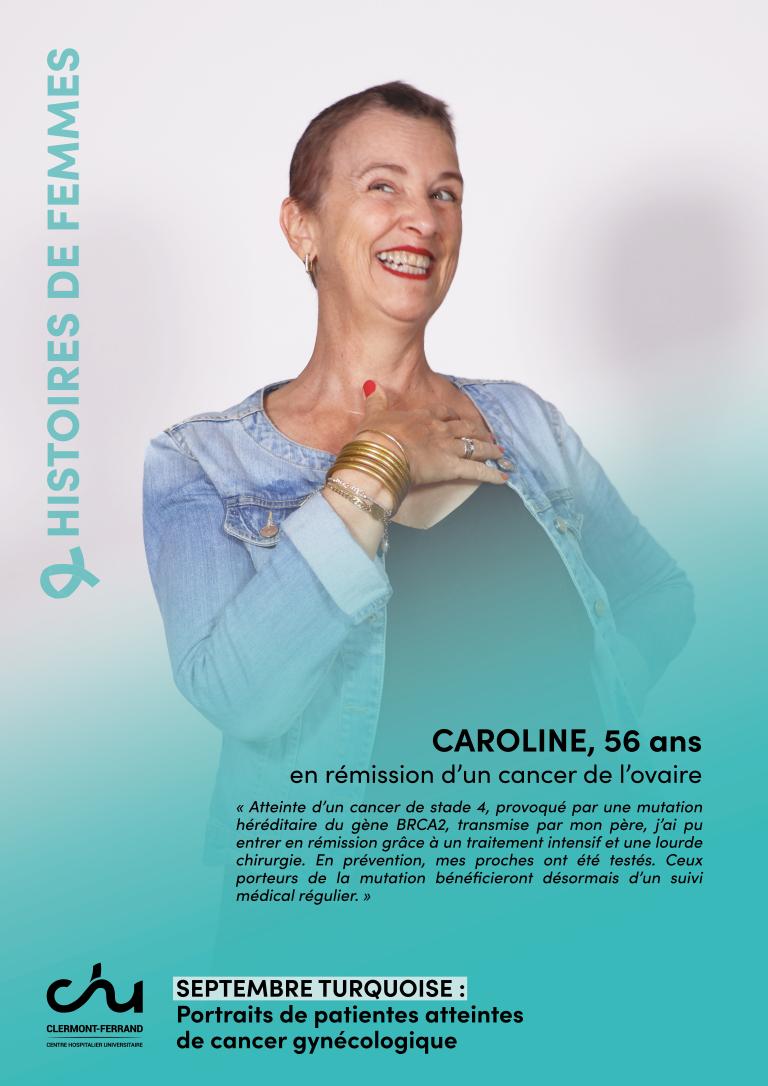
Raising awareness among healthcare professionals and patients about treatments
In parallel with the exhibition, two events are being organized:
-
An information and awareness booth for patients: Friday, September 5th, from 11:00 AM to 2:00 PM, in the Hall of the Gabriel-Montpied site, in partnership with the GSK laboratory and with the presence of the gynecology and oncology teams from the university hospital (CHU).
-
A medical conference for professionals: Tuesday, September 30th, at the Faculty of Medicine in Clermont-Ferrand. It is intended for both private and hospital-based healthcare professionals in the Auvergne region, including gynecologists, general practitioners, and midwives. The conference will cover updates and management approaches related to gynecological cancers—from surgery to medical treatment, including indications for oncogenetic consultations.
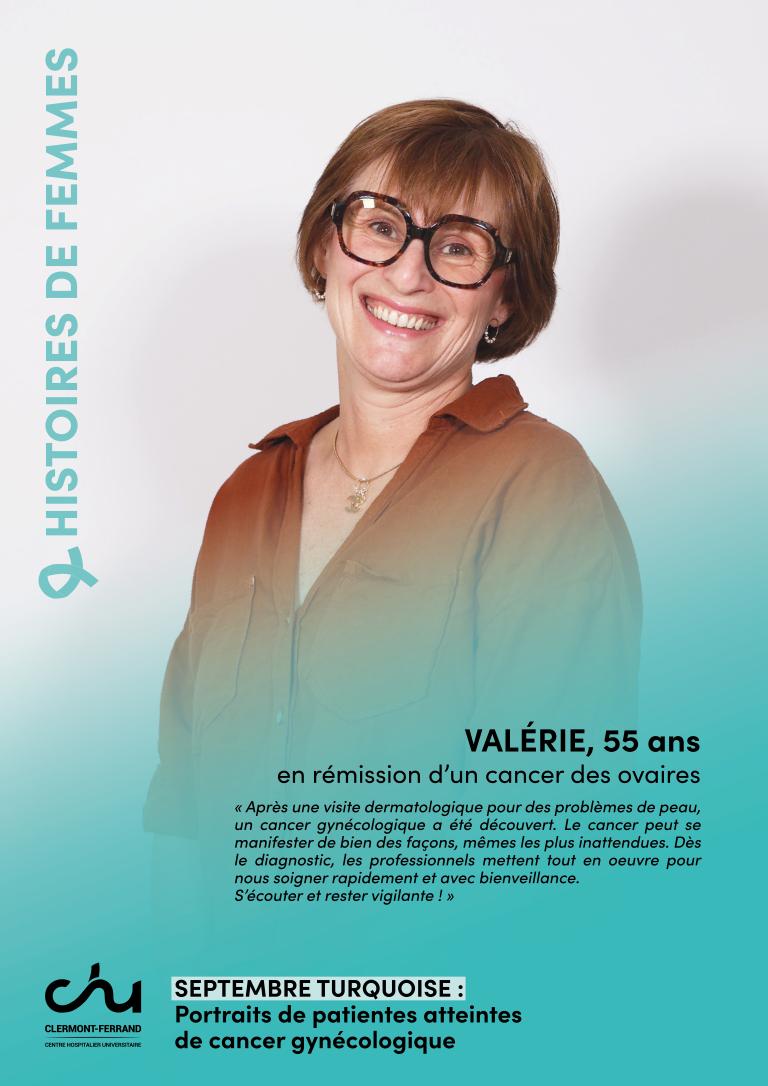
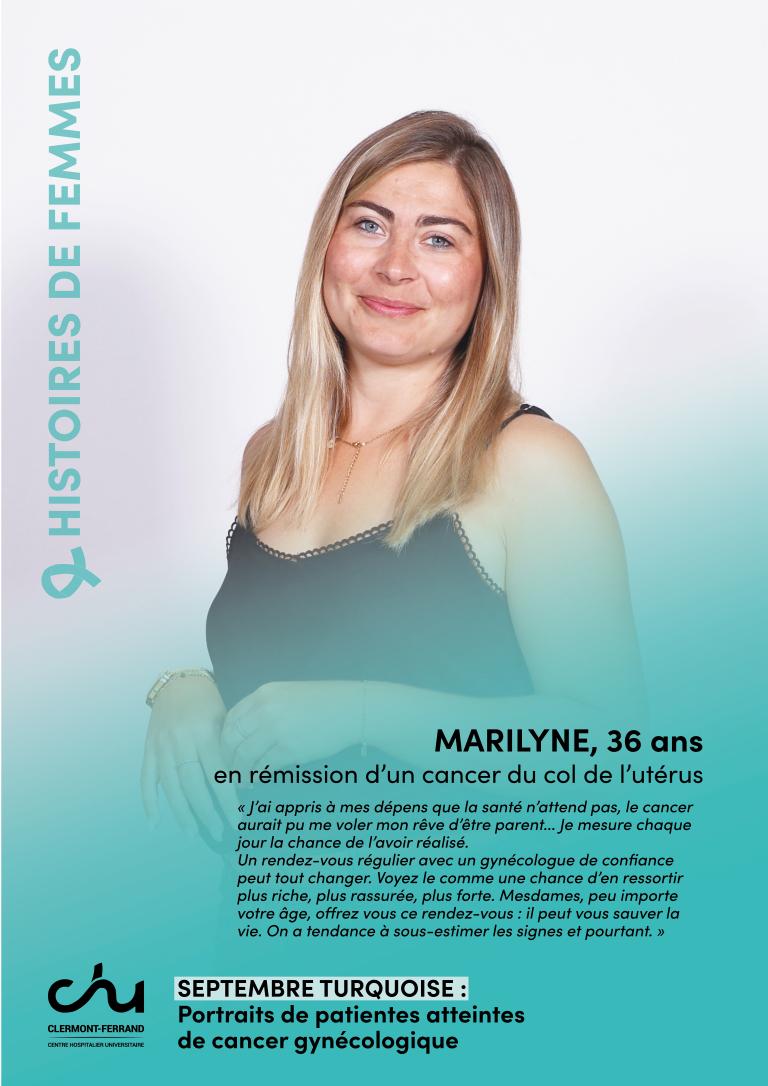
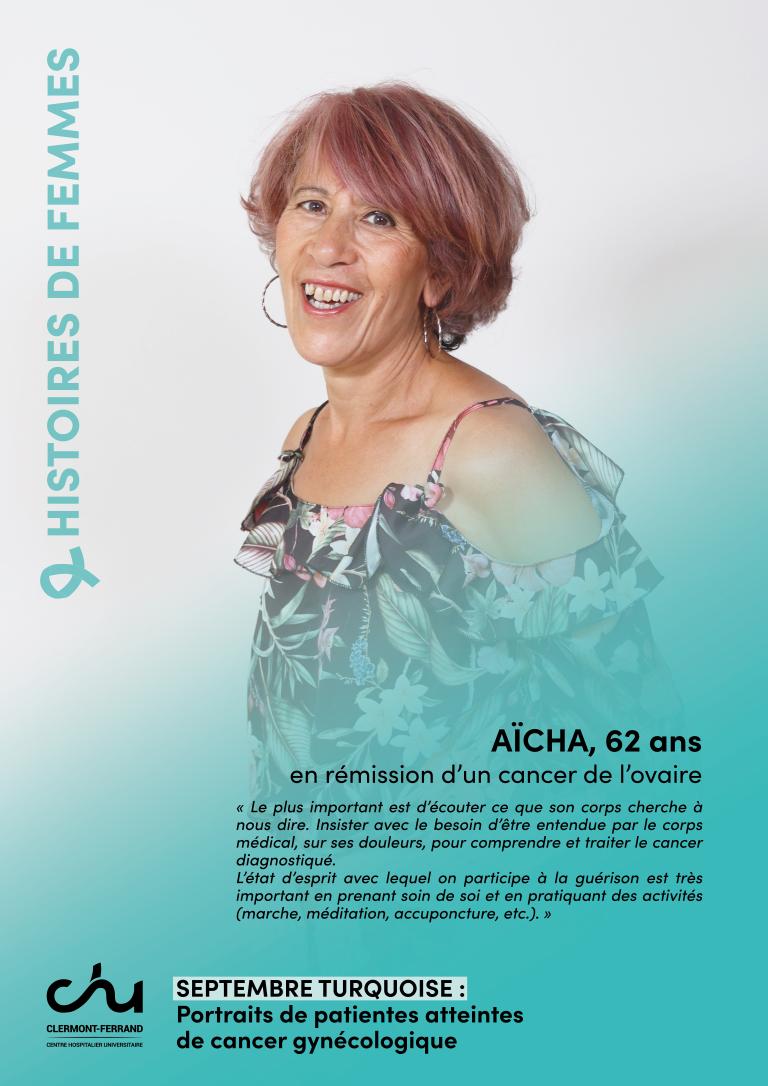
Learn more about gynecological cancers
On average, nearly 17,000 new cases of major gynecological cancers (endometrial, cervical, ovarian) are detected each year (by comparison: 61,000 cases of breast cancer, the most common cancer among women). When treated early, these cancers can be cured.
Endometrial cancer is the most common gynecological cancer in France (more than 8,000 new cases per year). It is often diagnosed due to abnormal gynecological bleeding outside of menstrual periods or after menopause. In most cases, when diagnosed early, surgical treatment alone may be sufficient.
Persistent infection with the human papillomavirus (HPV) is the main cause of cervical cancer. HPV vaccination during adolescence (for both girls and boys) helps prevent the risk of developing cervical cancer, and screening allows for early detection of precancerous lesions. This enables early and rapid intervention (precancerous lesions or diagnosed cancer) through surgery, radiotherapy, or chemotherapy. Regular screening is therefore recommended (every 3 to 5 years) during consultations with a gynecologist, general practitioner, or midwife.
As for ovarian cancer, it is most often diagnosed at an advanced stage. In case of abdominal pain, increased abdominal volume, or unexplained fatigue, a consultation with a doctor or midwife should be prompt. A family history of gynecological or breast cancer may also be a risk factor; one in five cases of high-grade ovarian cancer is linked to a hereditary genetic anomaly. This cancer often requires multidisciplinary management, combining chemotherapy and surgery.
The gynecology and oncology teams at the university hospital (CHU) provide care for patients at all stages of their conditions:
- gynecological follow-up and screening,
- surgical management,
- oncological treatment (chemotherapy, immunotherapy, etc.),
- and oncogenetic consultation.
